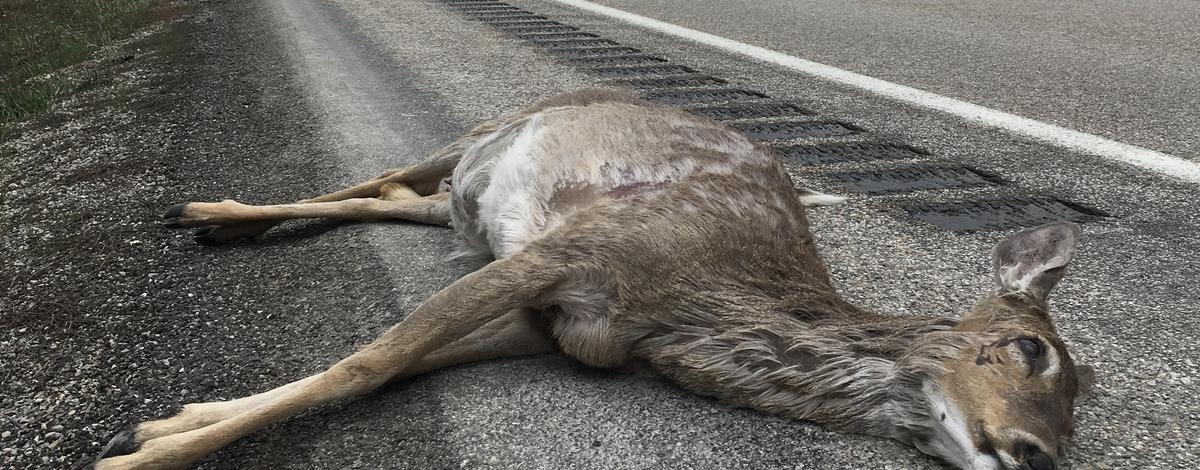Winter is a tough time for wildlife, especially big game, because it can be among the most hazardous seasons for them. Deer, elk and other animals are usually congregated in lowlands commonly known as “winter range,” which is often near cities, communities and highways. That also puts them close to vehicle traffic, and road kills are evidence of the toll highways can take on wintering animals.
Motorists are encouraged to be especially watchful for wildlife during winter, especially at night, or during morning and evening hours when animals are most active. Vehicle/animal collisions are dangerous, expensive, and obviously harmful to wildlife.
If you encounter an animal that’s been hit by a vehicle, you’re allowed to salvage some animals. People can salvage and keep wildlife classified as upland birds, upland game animals, big game, furbearers and predators that are lawfully hunted or trapped in the event that one of those animals has been accidentally killed by a vehicle.
Here’s a list of salvageable species
Unprotected non-game wildlife are also legal for salvage. However, many animals are not allowed for salvage, including protected non-game wildlife, animals that are federally protected under the Threatened or Endangered Species Act, migratory birds (which are also federally protected), and other wildlife species that cannot be lawfully hunted or trapped.
Before considering salvaging any animal, also remember there are rules you must follow:
- Animal must have been struck by accidental vehicle collisions.
- Before you claim any roadkill salvage, consider the safety of yourself and fellow travelers. Always abide by traffic and safety laws.
- You have 24 hours to notify Fish and Game, and 72 hours to obtain a salvage permit. You may self-report online, or by phone to Fish and Game regional offices.
- If calling after hours it's important to leave your full name, phone number, address and location of the salvage so a permit can be mailed. If self-reporting online, a printable permit will be generated. Salvage permits are free.
- People salvaging and consuming the meat do so at their own risk.
- All mandatory check requirements still apply if an animal that’s salvaged requires check in. These animals include black bears, wolves, mountain lions, bobcats and otters.
On July 1, dispatch of wildlife severely injured in a vehicle collision also became legal under the following conditions:
- A person considering dispatching a struck animal must follow all other laws, such as not discharging a firearm from or across a public highway, respecting trespass laws, and other general firearms statutes, transportation laws, or other provisions such as a city ordinance prohibiting discharge within city limits.
- It is the responsibility of the person who dispatches the injured wildlife to do so safely and not create an additional traffic hazard.
Here's more information about dispatching animals severely injured by vehicles.

